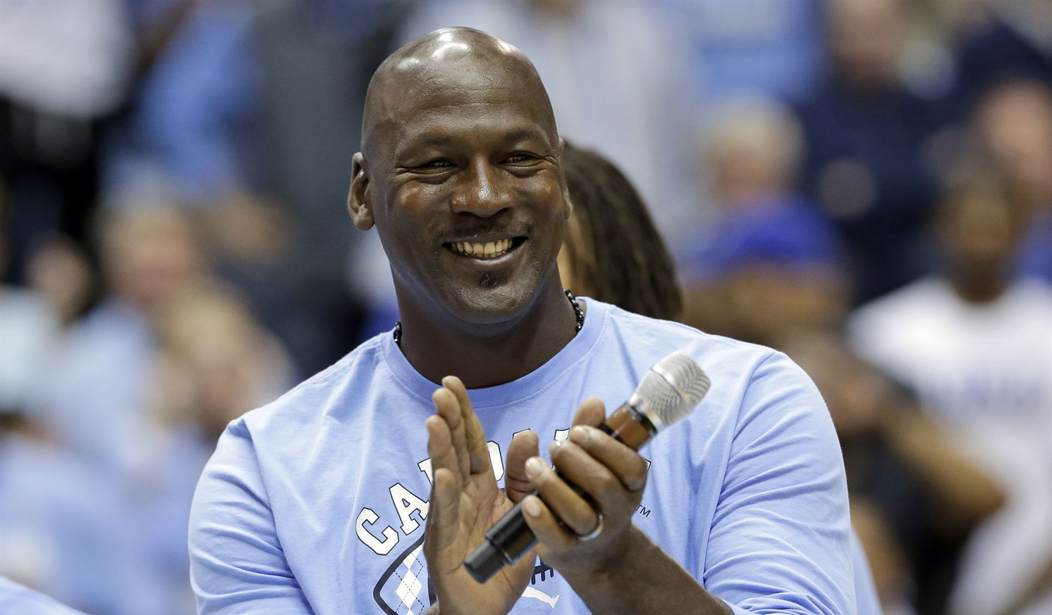ESPN's documentary on Michael Jordan and the Chicago Bulls is already receiving rave reviews for shining a spotlight on not only the greatest basketball player ever but one of the best athletes of all time. Four episodes into the 10-part series, "The Last Dance" has already underscored the vital role that family plays, especially in the lives of young black men.
"The Last Dance" skillfully bounces between chronicling the last running of the Bulls toward their sixth championship in eight years and delving into the backgrounds of the team's stars. Michael Jordan is rightly presented as the heart and soul of the team, an extraordinary athlete and competitor without peer.
Yet right there beside him was Scottie Pippen, who in his own right was one of the greatest players of his generation. Jordan himself reflected on this point, calling Pippen his greatest teammate of all time and noting that he never could have accomplished what he did without his lieutenant and the incredible team that took to the floor each night alongside him to compete.
The first episodes of "The Last Dance" explore the childhood of both Jordan and Pippen and teach some important lessons for black men growing up in America. Both Pippen and Jordan came from families with numerous children and, perhaps most importantly, they both benefited from having a married mother and father living in the home. In Jordan's case, his father was a disciplinarian who understood what it took to motivate his son.
In Pippen's case, his father, clearly a central figure in his life, suffered from a stroke that Pippen witnessed as a boy. He was confined to a wheelchair afterward and left without the power of speech. Pippen saw basketball as a way to escape the pressures of his home and a path to leaving the small hamlet of Hamburg, Arkansas, to achieve his ambition of playing in the NBA.
Family was at the core for Pippen and Jordan, with both men speaking in a contemplative manner of how their home experiences shaped them into the accomplished athletes that they would become. Jordan reflected on his sibling rivalry with his brother Larry, and a burning desire to earn the respect and praise of his tough but loving father. Pippen framed his decision to lock himself into a long-term contract -- at a far lower rate of pay than he deserved -- as coming from a desire to ensure that no matter what happened in his career, he was able to "take care of the people in my corner."
Recommended
Parental figures loomed large in the lives of both Jordan and Pippen, and they spoke of the lessons learned from the examples set by their parents, namely: work hard. Teammates, coaches, friends and siblings of both Bulls' superstars spoke about the tenacity that Jordan and Pippen displayed, especially during their college years and early in their NBA careers as they embarked on relentless quests to improve and become the best versions of themselves.
Far from perfect, the Pippen and Jordan households were stable and supportive and nurtured the dreams of their children. It makes for a stark contrast with the upbringing of the bizarre Dennis Rodman, touched upon in episode three. Before living on the street and sleeping in the backyards of friends after his mother kicked him out of the house, no father figure is even mentioned.
Core familial stability is something that sadly is sorely lacking today, especially among African American households. The replacement of husbands and fathers by "baby daddies" has been outright destructive for the social fabric of the black community.
What a difference it makes when role models live under the same roof, and young black men feel a deep sense of connection and commitment to both of their parents, as well as their siblings.
ESPN's documentary series highlights the tenacity, skill and commitment of Michael Jordan, but it also is teaching important lessons about the importance of teamwork and the absolutely vital role father figures play in the lives of young men.
Primed for success by his biological father, Michael Jordan began ascending to athletic greatness under the careful, fatherly guidance of his coach at the University of North Carolina, the legendary Dean Smith. It was a role later replicated by Bulls coach Phil Jackson, who managed to quietly and confidently guide the men entrusted to him to glory beyond their wildest dreams.
I look forward to the series continuing and challenge other viewers to look past the dunks and drama to spot the vital life lessons contained in "The Last Dance."

























Join the conversation as a VIP Member